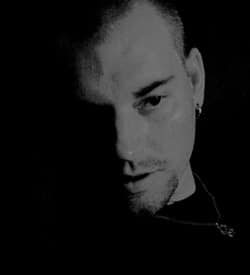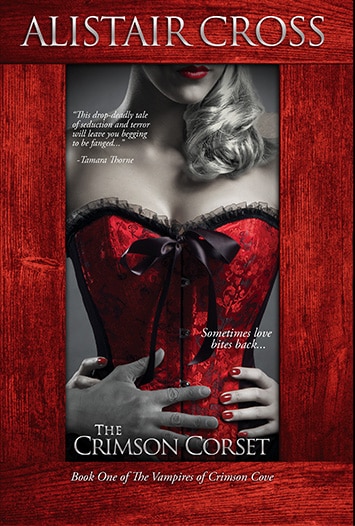Writing Horror:
Advantages and Disadvantages
By Alistair Cross
Home > The Hallway > The Advantages and Disadvantages of Writing Horror

There are advantages and disadvantages to writing in any genre, and horror is no exception. While it is a relatively small market when compared to romance, police procedurals, or political thrillers, the possibilities of horror extend much further because of its presence in every genre – including children’s lit and mainstream fiction. In fact, it’s so prevalent in romance, that it has its own thriving sub-genre, “paranormal romance.”
One of the advantages of horror is that while it can be a genre in its own right – think vampires, ghosts, and other monstrous beasties – it is everywhere. The Silence of the Lambs is considered mainstream, yet it is a horror novel throughout, passing the genre tag perhaps because it is not only well written, but Hannibal Lecter is a human monster. (His extreme senses are much like those of detective Sherlock Holmes’ in that they can seem supernatural. But in Hannibal’s case, they are used to foment crimes, not solve them. That’s the only difference.)
Speaking of the Great Detective, several of Sir Arthur Conan Doyle’s tales – such as The Hound of the Baskervilles – appear supernatural although ultimately, the hound and other mysteries are explained away. If the hound had remained a possibly supernatural creature, the same novella would have been labeled horror in a heartbeat.
Horror is subjective. Aliens is science fiction but is really just a haunted house story set in a spaceship and the bogeyman – er bogeywoman – is from another world instead of the depths of our closets.

This is an advantage of horror. There are many definitions of “horror” and the genre one in literature generally has some sort of supernatural bent. There is often violence, but the emphasis is on fear, not gore. In the movies, sheer violence (Saw, Hostel, Texas Chainsaw Massacre, etc.) makes up a very definite sub-genre of horror – the slasher flick. These often lack any supernatural elements.
This is one of the disadvantages of horror. Many people are aware of these movies and assume that all horror – including horrific novels – is simply about bloodshed. A good horror novel may contain it, yes, but it is also – when well written – a novel as worthy of respect as those in any other genre, from thriller to historical to “literature,” which isn’t really a genre as much as an adjective that ought to be earned over time. “Literature” is about good books, no matter the genre, not about a label plastered on the latest Oprah pick. If you fall for that, you’re very possibly falling for publishing hype.
I love to read in the horror genre and many other genres as well because they usually contain elements of the horrific. I write it because addressing fear is simply what comes natural to me. When I wrote The Crimson Corset, I knew my book fell into the traditional horror genre because it’s about vampires. But if the vampires were human, the book would probably fall into mainstream or thriller fiction. Or, because The Crimson Corset’s human protagonist, Cade Colter, is a young man who arrives in Crimson Cove as a youthful innocent and is changed over the course of the story, it could easily be considered a coming-of-age tale. If his problems were caused by human bullies instead of vampiric ones, the horror label wouldn’t apply and coming of age stories are usually considered mainstream, no matter the imprint on the book’s spine. Lord of the Flies, a classic example of coming-of-age literature, is horror, pure horror, through and through – more horrific, in fact, than any slasher story could ever hope to be.
So, while there are advantages and disadvantages to writing in any genre, I stand firmly by the philosophy that you must write what you love if you want readers to love your work as well. If product labels are necessary for campaign purposes, that is all well and good. However, I believe the real soul of storytelling defies traditional classification.
